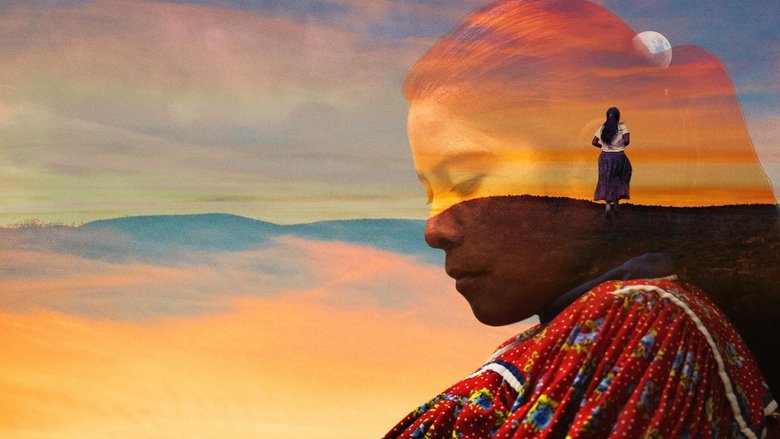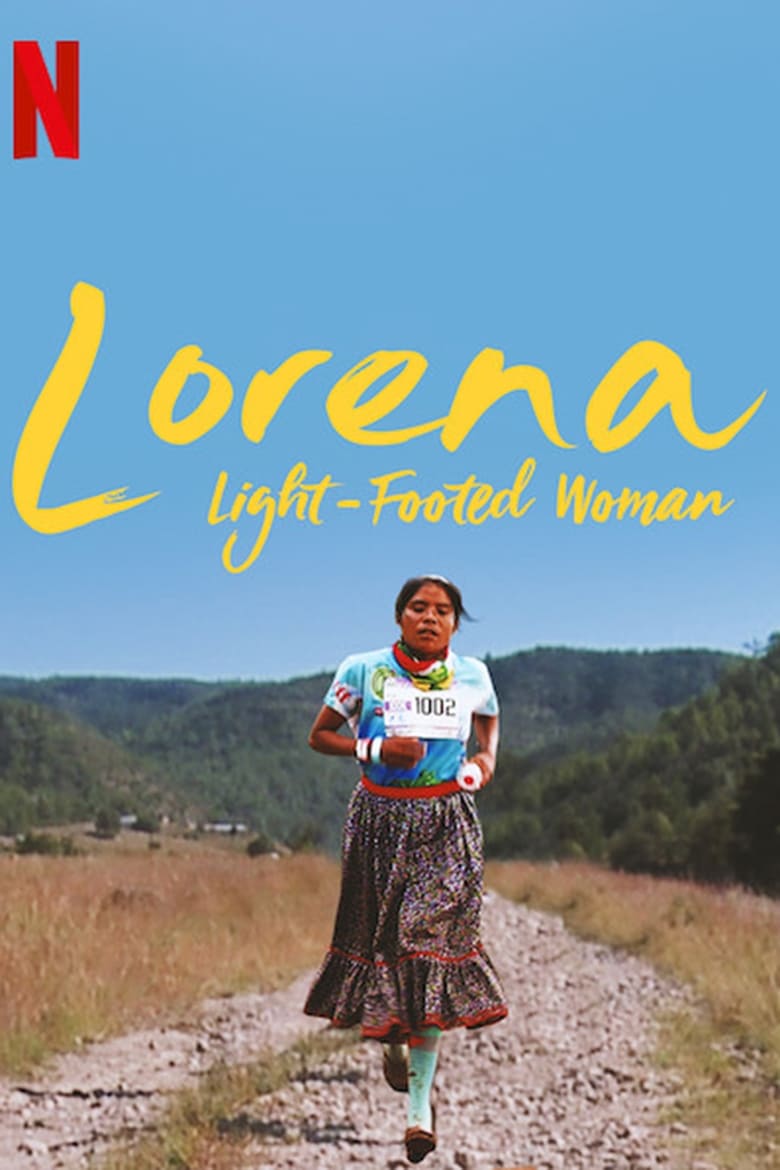

Lorena: Light-Footed Woman
Genres
Overview
A young woman of the Tarahumara, well-known for their extraordinary long distance running abilities, wins ultramarathons seemingly out of nowhere despite running in sandals.
Details
Budget
$0
Revenue
$0
Runtime
28 min
Release Date
2019-11-20
Status
Released
Original Language
Spanish
Vote Count
36
Vote Average
6.708
Lorena Ramirez
10.0
2001 Arizona Diamondbacks: The Official World Series Film
A documentary about the 2001 World Series.
2001-11-30 | en
0.0
Black Magic
Examines Civil Rights-era America through the prism of basketball at historically black colleges and universities.
2008-03-08 | en
0.0
Henri Matisse
Documentary film about artist Henri Matisse
1946-04-16 | fr
10.0
Stories of Strength and Hope: Preventing Youth Suicide
An up-to-date look at Youth Suicide with an examination of the warning signs, statistics and causes, along with possible ways teachers and parents can use to help their child overcome this important social issue. Also includes a look at the media and its handling of the social issue through the Netflix series "13 Reasons Why" and the Tony Award-winning Broadway musical, "Dear Evan Hansen."
2018-05-16 | en
0.0
Danielle Mitterrand, une certaine idée de la France
2019-03-09 | fr
8.0
Grizzly Tour
The one-off documentary tells the story of two women travelling by bike across the United States, from Canada to Mexico along the Great Divide. A unique adventure through the most remote areas of the Rocky Mountains, between pristine nature and wild animals. An epic journey that led them to travel 4,000 km and climb 60,000 meters and that, day after day, forced them to face their own limits, their strength and fragilities, and tested their relationship. Because every journey is always a love story.
2020-12-02 | it
6.0
Fallas 37: el arte en guerra
In November 1936, a few months since the beginning of the Spanish Civil War, the government of the Second Republic moves to Valencia. In this situation, several Valencian artists and intellectuals decide to build four fallas — satirical plasterboard sculptures created to be burnt — to mock fascism.
2013-03-02 | es
0.0
The 25,000 Mile Love Story
Swiss endurance athlete Serge Roetheli's thirst for adventure and desire to raise money and awareness for children suffering across the globe propelled him to run a distance equal to the earth's circumference. Accompanied by his equally adventurous wife Nicole, who drove a motorcycle with their supplies and pup tent in tow, they planned and executed the journey of a lifetime. Leaving from Sion, Switzerland in 2000, they returned five years later having traversed six continents and thirty-five countries. Alone in the world's most unforgiving landscapes they confronted challenges that threatened to push them beyond their physical and emotional limits - extreme weather, civil unrest, deadly disease, horrific poverty and a variety of other life-threatening events.
2015-09-01 | en
0.0
One Night in Millstreet
A prizefight between underdog Steve 'The Celtic Warrior' Collins and champion Chris 'Simply the Best' Eubank grips and encapsulates an entire nation as it emerges from depression towards previously unimagined prosperity.
2024-04-05 | en
10.0
UNSTOPPA3LE | The Story of our Treble Season and Historic World Record!
The UNSTOPPA3LE Journey began with a unique approach that was free from monotony and tradition, accompanied by doubts. New players joined, and a coach returned after many names had changed. The team, led by Fahad Al-Hilal and the board, overcame the challenges of the starting line and calmly moved toward its goals, despite facing obstacles and injuries.. The journey continued toward its objectives, achieving an initial goal and securing the record for the longest winning streak in the world according to the Guinness World Records. The path to the second goal faced setbacks, but these only served as motivation to clinch the league title in its strongest edition. Another podium was graced with celebration as the team set its sights on the most prestigious trophy, which they earned and received from the inspiring leader, His Royal Highness the Crown Prince..
2024-10-20 | ar
0.0
Vsaďte na Korana
1963-01-01 | cs
0.0
Candace Parker: Unapologetic
A wide-ranging, revealing, and often intimate portrait of WNBA player Candace Parker, one of the most transcendent women's sports stars in history.
2023-11-12 | en
6.0
Alfonso Sánchez
Famous Spanish film critic Alfonso Sánchez talks about his personal life, his work and Anouk Aimée. A sentimental tribute to one of the most relevant figures on the Spanish film scene.
1980-01-01 | es
6.3
Maradona by Kusturica
A documentary on Argentinean soccer star Diego Maradona, regarded by many as the world's greatest modern player.
2008-05-28 | en
10.0
Le Dernier Voyage de Patrick Edlinger
2017-02-18 | fr
6.0
13 Days in France
This colorful documentary chronicles the events of the 1968 Winter Olympics in France. The events made international celebrities of skater Peggy Fleming and skier Jean-Claude Killy for their gold-medal performances. The camera accurately catches the speed of bobsleds and downhill racers and ski jumpers as they race for the gold. President Charles DeGaulle is shown observing the action over 13 days, which saw France earn the best performance to date in the winter games.
1968-09-27 | fr
5.0
0,03 seconds
A poignant insight into the world of sport, where talent, passion and endurance mean everything, but give no guarantee of success.
2017-04-13 | nl
0.0
Never a Backward Step
This feature documentary is a profile of Canadian press tycoon Roy Thomson, whose single-minded attention to business brought him riches, power, and even a baronetcy in England. A native of Timmins, Ontario, Thomson had a tremendous career as publisher, television magnate, financier, and owner of many newspapers, including leading London dailies. The film is a frank study of an equally frank man.
1966-01-01 | en
5.5
Daughter of the Crater
A woman with a deep love of the land, Yolande Simard Perrault sees her life as having been shaped by a planetary upheaval in Charlevoix, Quebec, millions of years ago. As enduring as the Canadian Shield, she’s a woman of strength and spirit, a child of the crater left by the meteor’s impact. This documentary portrays a determined woman who’s the reflection of a land created on an immense scale. She was the creative and life partner of filmmaker Pierre Perrault, who gave up everything to be by her side. The film charts the influence of her unquenchable dreams and her contribution to the building of a people’s collective memory. In a stream of images and words, Simard Perrault recounts the splendours of the landscape and the people who shaped it. Generous and boundless, she embarks on a quest for identity that nurtures and perpetuates the oeuvre of the man who breathed new life into Quebec cinema.
2019-09-13 | fr
5.0
Rodar en Cuba
Documentary - Short Film
2003-01-01 | es